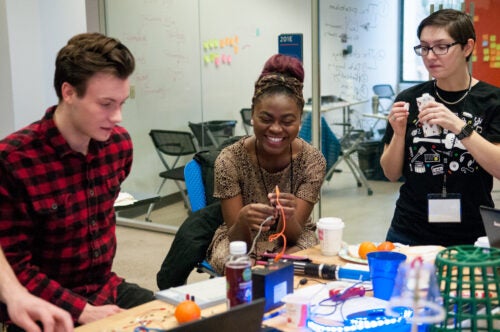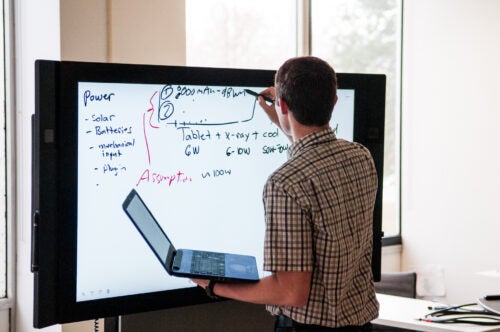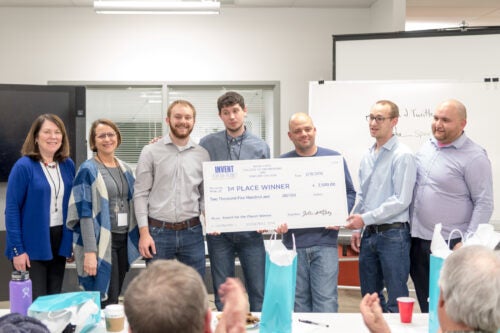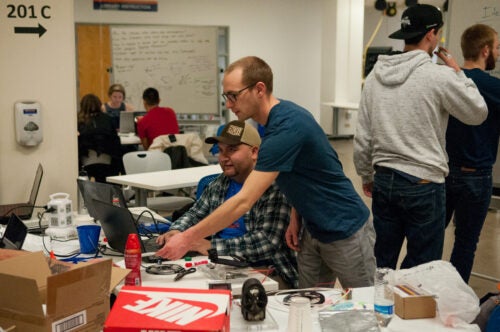
Boise State participated for the first time this year in Invent for the Planet, the global innovation challenge that asks students to spend an intense 48 hours trying to solve problems that affect communities around the world. The College of Engineering and the Venture College co-hosted the event that took place at the College of Innovation and Design Feb. 16-18.
Other participating universities included the University of New South Wales in Sydney, Australia, The University of Cape Town in Cape Town, South Africa, Swansea University in Swansea, Wales, Texas A and M Qatar in Doha, Qatar, Mahidol University in Bangkok, Thailand, and several others.
At Boise State, around 40 students divided into seven teams. The teams brainstormed about waste management, educational challenges, public health issues and more. A team called Spark won the $2,500 prize after taking on the challenge to develop a portable light for use in places without reliable electricity. The invention makes it possible for students to study after dark.

Boise State advanced Spark’s project to the international competition. While Spark didn’t win the international prize (a team from Texas A and M University working on the same challenge won with their own version of a night light), Spark plans to keep working on the project.
“We decided whether we won or lost we’d continue, no matter what,” said team member Reed McKenzie, a senior majoring in Spanish and international business with a minor in marketing.
The team wants to create a light kit simple enough for students in middle school to build. The finished lights would be sent to students in developing countries. The American students would keep in touch with the students who receive the lights, whether through video chats or other means.
“We want students to learn STEM skills, like how to build a generator, but also to see a physical representation of how they’ve made a difference for someone else,” said McKenzie.
Most of Spark’s five team members were strangers before Invent for the Planet.
“And now we’re starting a company together,” said McKenzie.
They’ve already started meeting with teachers and possible distributors and others interested in their project.

Organizers consider the event a success. Seventy-one Boise State students quickly signed up for the competition’s 40 spots, said Marilyn Bickle, assistant director of the Venture College.
“We accepted a few over 40, then had a waiting list,” said Bickle.
Students worked with mentors during the course of the weekend. The competition included building simple models and developing presentations for a panel of judges. Microsoft donated a platform that connected all of the participating universities online.
“We spent time watching a team from Egypt,” said Bickle. “It was fascinating to see the other labs. And to see that everyone’s labs looked a lot like the College of Innovation and Design. It was a unique part of the competition.”
JoAnn Lighty, dean of the College of Engineering, said she hopes to partner with the Venture College on other projects in the future.
“It was a great event and good to see the diversity of majors at the event. Everyone learned from each other,” she said.

The second place team, Day L’s, also worked on the night light challenge and won $1,000. The third place team, Safe and Sound, worked on a drone-enabled spraying system to kill mosquito larvae and help curb mosquito-borne disease. They won a $500 prize. Other participants received gift cards.
“We tried to shower them with food and gifts,” said Bickle.